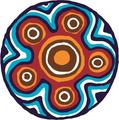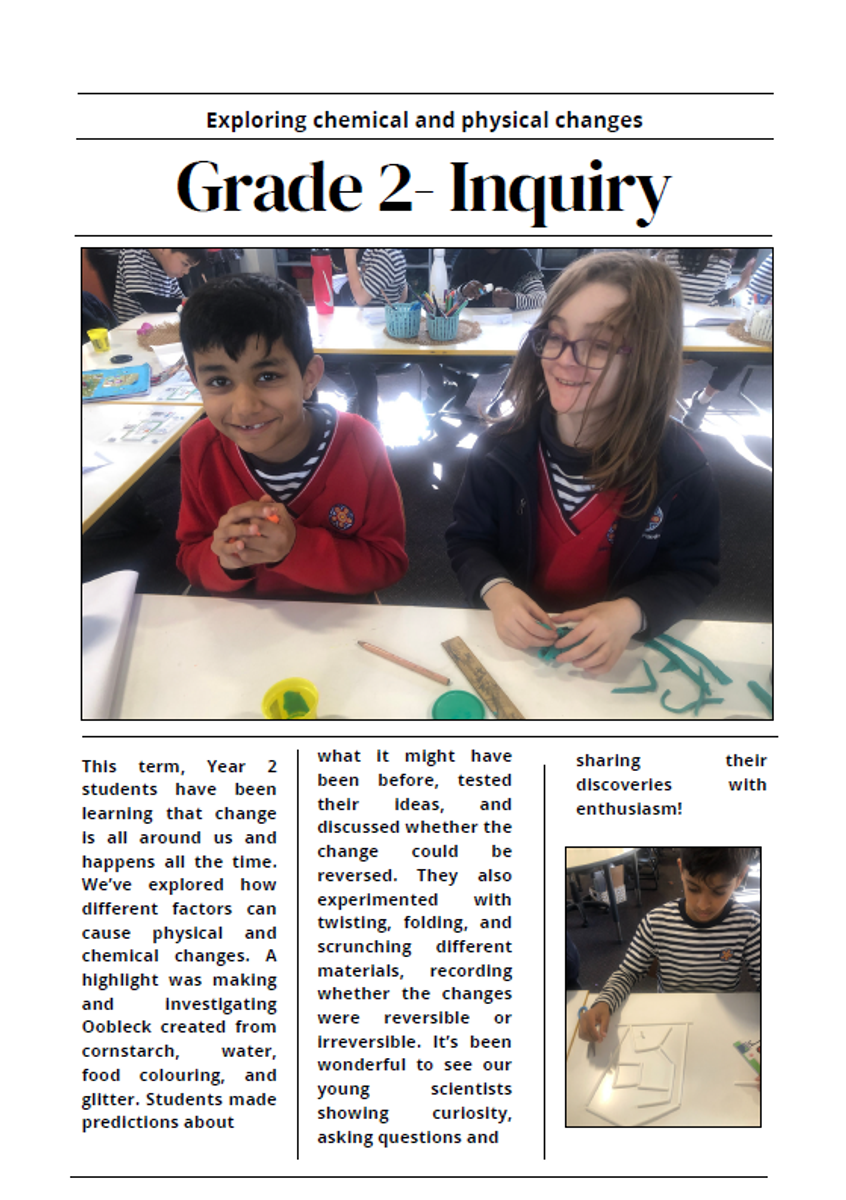Year 2 Term 3 Overviews

Wominjeka Year 2 Families!
Reading:
This term in reading, Year 2 students will make connections, compare and contrast texts of the same genre and text types including nonfi ction and fi ction texts. While reading, students will solve words using their growing phonemic and morphemic knowledge and they will re-read a word or a phrase to self monitor their reading. Students will use organisational tools and text resources such as titles, chapter titles, glossaries, tables of contents, captions, and labels to support their understanding of the text. They will identify and summarise the important information in nonfi ction and fi ction texts. When reading and discussing texts, students will take evidence from multiple sources to make inferences. Students will talk about what the reader knows about the topic before reading the text, and identify new knowledge gained from reading.
Writing:
This term in writing, Year 2 students will be exploring writing an information report. .Students will use literacy techniques such as word choice, interesting words, description, and graphics with labels to engage the reader. They will also use some topic specifi c vocabulary, and will be introduced into putting information into categories. Through this unit, students will be continuing to develop well-crafted sentences by using a combination of simple and compound sentences and will continue to experiment with paragraphs and a variety of punctuation such as full stops, question marks, exclamations marks, and commas. Students will also spell words with learnt digraphs and write one to two syllable words with consonant blends.
Mathematics:
This term in maths, year 2 students will use a range of methods to collect, record, represent and interpret categorical data in response to questions. They will also determine the number of days between events using a calendar and read time on an analog clock to the hour, half-hour and quarter hour.Students will order and represent numbers to at least 1000; apply knowledge of place value to partition, rearrange and rename two- and three-digit numbers in terms of their parts; and regroup partitioned number. They will use modelling to solve practical additive and multiplicative problems and will represent different situations. Students will recall addition and subtraction facts within 20 and multiplication facts for twos.
Inquiry:
This term in inquiry, year 2 students will be inquiring into change and how it occurs in different time frames which is caused by different factors. Students will be exploring long term and short term change ( physical & chemical) and changes of state (solids, liquids and gas). They will also be investigating how materials can be physically changed or combined with other materials in a variety ways for a particular purpose (e.g eggs making a cake or milk/butter/cream.
Social Emotional Learning:
This term in SEL, Year 2 students will develop an awareness of positive and negative gender norms. Students will understand that they can play and learn with people from different social groups or backgrounds. They will practice respectful and gender friendly behaviours, and recognise behaviours that are hurtful and unfair based on ideas about what it means to be a boy or a girl, e.g. excluding someone because they are a boy, hurting someone because they are a girl. Students will describe situations and behaviours that are ok and not ok and show compassion towards others through their actions. Lastly, they will learn to develop an appreciation of difference and understand that it is ok to be different to others.Nightly
Reading:
It is important for your child to continue reading every night. Every morning your child is expected to change their take home book or utilise WUSHKA to practice their reading goal. This should be documented in your child’s yellow Take Home Reading Journal.

